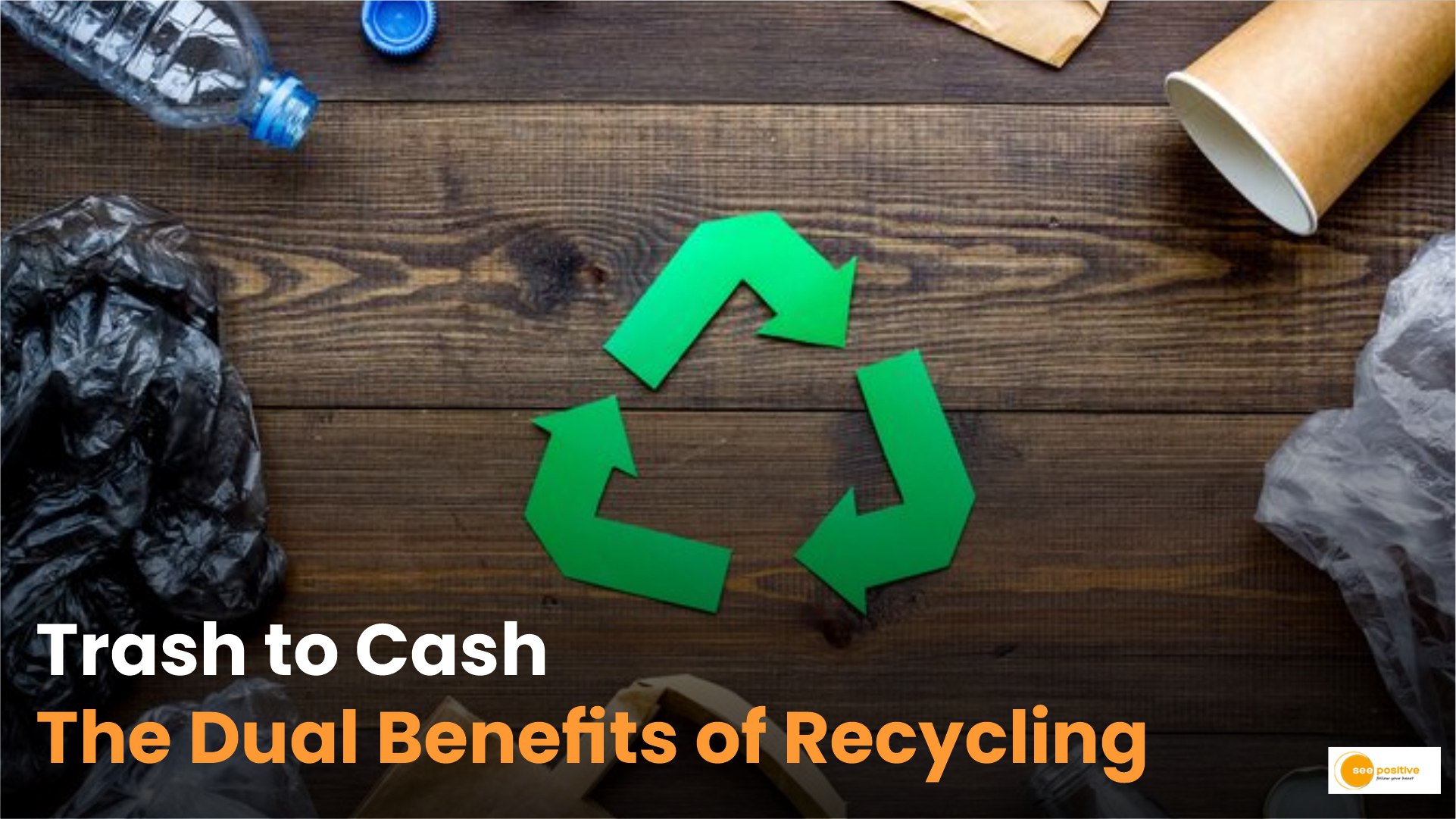Recycling: Recycling is more than just a buzzword it’s a crucial practice that benefits the environment and offers financial rewards. In today’s world, where waste and pollution rapidly deplete natural resources, recycling has become necessary. It not only helps conserve resources and reduce environmental damage but also creates opportunities for cost savings and economic growth.
How Recycling Helps the Environment
1. Reduces Landfill Waste
Landfills are one of the largest contributors to environmental degradation. When waste is recycled, the amount of garbage sent to landfills decreases significantly. This minimizes pollution, reduces methane emissions, and slows the contamination of soil and water.
2. Conserves Natural Resources
Recycling helps preserve finite natural resources like trees, minerals, and water. For example:
- Recycling one ton of paper saves approximately 17 trees.
- Recycling metals reduces the need for mining, which destroys ecosystems.
3. Saves Energy
Manufacturing products from recycled materials uses significantly less energy than producing them from raw materials. For instance, recycled aluminum uses 95% less energy compared to extracting aluminum from bauxite ore.
4. Reduces Pollution
Recycling reduces air and water pollution caused by industrial processes. By reusing materials, fewer toxic chemicals and greenhouse gases are released into the atmosphere, helping combat climate change.
How Recycling Helps Financially
1. Cost Savings for Households
Recycling can save money on waste disposal costs. Many municipalities charge lower fees for recycling services than for regular garbage collection. Additionally, repurposing items at home—like using glass jars for storage or turning old clothes into cleaning rags—can save money.
2. Creates Economic Opportunities
The recycling industry generates jobs in collection, processing, and manufacturing. According to studies, recycling creates 10 times more jobs than landfill operations. This provides an economic boost to local communities.
3. Reduces Manufacturing Costs
For businesses, recycled materials are often cheaper than raw materials. Companies that use recycled materials in production can lower their expenses while contributing to sustainability.
4. Earn Money from Recycling
Individuals and businesses can earn money by selling recyclable items such as scrap metal, paper, and plastic. Some companies even pay for used electronics and batteries, turning waste into a source of income.
Tips to Maximize Recycling Efforts
- Know What Can Be Recycled:
Common recyclables include paper, cardboard, plastic bottles, aluminum cans, and glass. Check your local recycling guidelines for specifics. - Reuse Before Recycling:
Repurpose items like jars, containers, and old clothes before discarding them. - Compost Organic Waste:
Turn food scraps and yard waste into compost for your garden, reducing landfill waste and improving soil health. - Support Recycled Products:
Buy products made from recycled materials to support the recycling industry and reduce demand for raw materials. - Educate Others:
Spread awareness about the benefits of recycling in your community, encouraging collective action.
The Bigger Picture: Recycling for a Sustainable Future
Recycling is not just an individual responsibility—it’s a collective effort that benefits the planet. By reducing waste, conserving resources, and cutting down on pollution, recycling paves the way for a sustainable future. At the same time, it contributes to economic growth by creating jobs and reducing costs.
Governments, businesses, and individuals must work together to make recycling a priority. Simple actions—like sorting waste, reusing materials, and supporting recycling initiatives—can make a significant difference.
Conclusion
Recycling is a powerful tool to address environmental challenges and achieve financial benefits. By making recycling a part of your daily routine, you can play a vital role in protecting the planet while saving money and supporting the economy. Remember: every small step counts toward a healthier, greener, and more prosperous future.


